#wine farm
Explore tagged Tumblr posts
Text






From the Babylonstoren Wine Estate Gardens.
#south africa#africa#original photography on tumblr#flower photography#flowers#wine farm#western cape
16 notes
·
View notes
Text

1 note
·
View note
Text
Plettenberg & Grabouw
In September, we went for a week to Plettenberg Bay. We had a relaxed time, going to the beach several times. The food highlight was definitely Barrington’s, a local brewery with tasty meals. Our usual visit to Île de Païn in Knysna was also on the schedule. On the way back, we stopped in Grabouw for a few days as well at Houw Hoek Inn, the place where we got married almost 10 years ago. We…

View On WordPress
#Barrington&039;s#Cluver#Elgin#Food#Grabouw#Houw Hoek Inn#Ile De Pain#Knysna#Nature#Plettenberg#Plettenberg Bay#Railway Market#The Melting Pot#Wine#Wine Farm
1 note
·
View note
Text
We are ignoring that there is at least one DELLAMORTE VINYARD in southern antiva somewhere and I'm not saying that being a wine farmer would be the perfect cover for an assassin and his wife who were both presumed dead at some point but I'm also not not saying that
#do you see my vision#a little italian villa in southern antiva at the vinyard for lucanis and rook#illario has to deal with the crows#lucanis gets all the good wine and coffee he wants#he can be a househusband and rook can just chill because they have people to do the actual farming#ooh i LOVE it i cant believe i didnt think about that before#AND HE DOESNT HAVE TO LEAVE ANTIVA#or illario if he so chooses#a select few people know where they are of course but other than that they settle in to domestic bliss#rookanis#rook x lucanis#datv#dragon age the veilguard#dragon age#lucanis dellamorte
62 notes
·
View notes
Text
throwbackgaylor logging every single tiktok of karlie dancing to every single song but not mentioning the part where she left early before the 1989 rerecording was even announced is very funny to me. You can truly never trust your history books, for they all have an angle.
#barry.txt#taylor swift#no I dont think its because she was waiting backstage so they could drink white wine and make love througu the nigjt#its more likely she got tired and went home to spend time with her children#sorry if this comes off as mean its just very funny. pepperidge farm remembers.#i remember so throwbackgaylor doesnt have to
34 notes
·
View notes
Text
This one is even more Rebecca Welton coded
#hannah waddingham#rebecca welton#Pepperidge farm#cookies#biscuits#milano cookies#red wine#this is so rebecca being cozy at home with her wine and biscuits waiting for ted after a long day at work#i love her so much#AD#make all that money girl
62 notes
·
View notes
Text

grapes hanging on the vine. ripe berry closeup. harvest season. autumn colors
#grapes#vine#harvest#autumn#grape#season#color#hanging#nature#vineyard#agriculture#wine#plant#fruit#background#ripe#fresh#food#bunch#organic#leaf#grapevine#branch#berry#farm#natural#healthy#sweet#purple#rural
13 notes
·
View notes
Text

vineyard sunbreak
#beauty#outdoors#nature#peaceful#serene#landscape#fantasy#photography#farm#wine vineyard#sunset#grapes#win#wine#red wine#food and drink
16 notes
·
View notes
Text

#mine#photography#cottagecore#aesthetic#pinterest#nature#farm#cottage#country#countryside#red wine#peach#turmeric#pastry#chocolate#Italian#lake#Americana#snow#medieval#Island#City#cowboy#coquette#academia#90s#rave#forest#corporate#tundra
7 notes
·
View notes
Text







#ai generated#ai image#ai photography#stable diffusion#landscape#trees#plantation#farming#toscana#italy#sunny#wine#houses#ancient houses#old house#hills#grassy#meadows#meadow
7 notes
·
View notes
Text







Babylonstoren Wine Estate, Western Cape, South Africa
17 notes
·
View notes
Text


The Sixty Clicks Winery logo; like and follow for more agriculture logos!
#agriculture logos #agriculture #farming #farm #farmer #farm life #agri #agribusiness #farmers market #wine #winery #logo #logo design #logo inspiration #graphic design
9 notes
·
View notes
Text
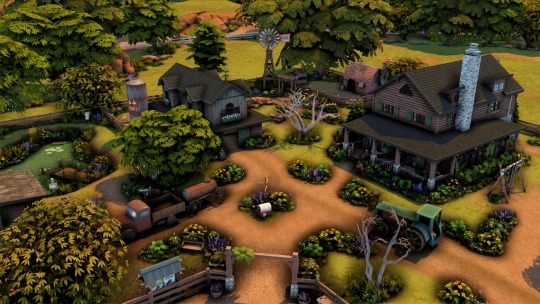

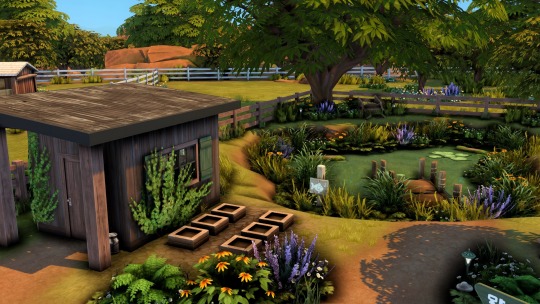


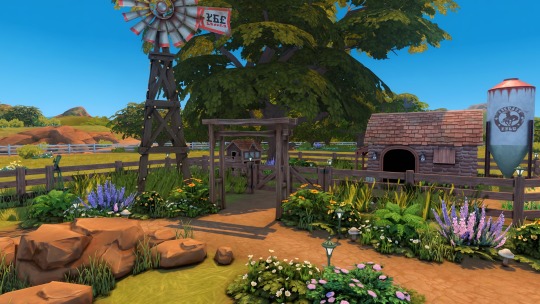

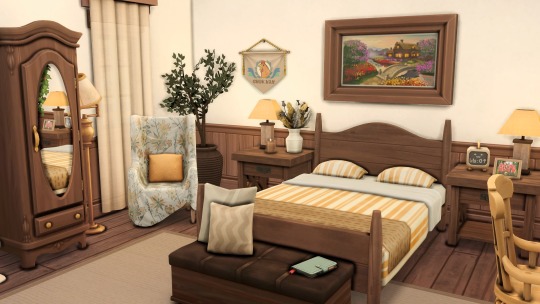


Gallery ID: hollykilgore3
#the sims 4#ts4#farmhouse#no cc build#clutter#chestnut ridge#horse ranch#farm#cowboy#yeehaw#ts4mm#wine cellar#ts4 baby#3 bedroom
51 notes
·
View notes
Note
How did the Skeletons crash on Reader’s land? I am so curious. XDD
Wine, Coffee, and Bee are one of the field teams. Wine’s the driver, with his odd ability to predict the storm’s movements (most of the time). Coffee flies a drone for a Birds Eye view, and Bee keeps an eye on the storm and the data from his scanners.
This particular tornado was larger than any of them anticipated. Not even Wine could predict its path.
They realized fairly quickly that they needed to get out, but Wine is a stubborn bastard, who refused to lose any data. To get out safely they’d have to shortcut away… but if all three of them can shortcut… would they be able to take the van with them?
Short answer: yes.
Long answer: not without a lot of damage.
They all grouped together and shortcutted to a farm they passed by, not too far away but out of the worst of the storms effects. The data was fine, the van was not. It sat totaled in the middle of Reader’s cow pasture. The guys weren’t in the best condition either, passing out from magic overuse - only waking when one of Reader’s cows gets curious enough to poke its head in the wreckage… and lick Wine’s face.
#I feel it’s important to note here that Wine HATES animals#especially farm animals#Star#yucky answers#yucky yaks#yucky writes#headcannons#Stormchaser au#undertale#underswap#us papyrus#bee#fellswap gold#fsg sans#fsg papyrus
14 notes
·
View notes
Text
Südengland 2024 - Tag 11
Ladies und Gentlemen!
Hier ist er auch schon: Der letzte Tag unserer Reise auf die Isle of Wight.
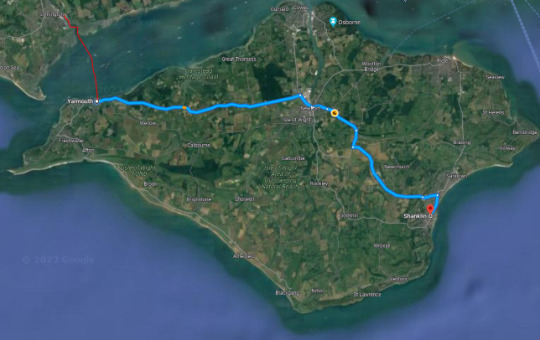
Leider müssen wir heute die schöne Isle of Wight wieder verlassen. Auch dieses Mal hat uns die Isle of Wight total begeistert.
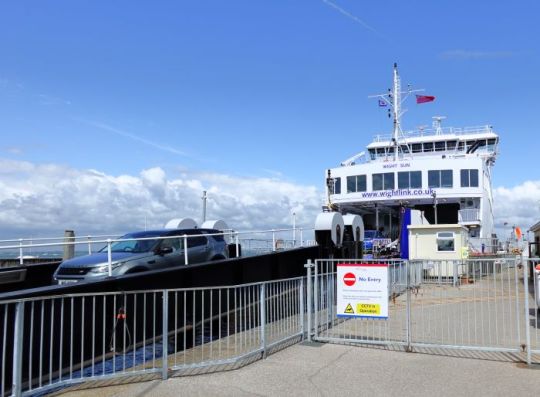
Nach dem Frühstück folgt das übliche Ritual packen, Kühlschrank ausräumen, Auto einräumen und los geht es, quer über die Insel, zum Fährhafen von Yarmouth.

In Yarmouth haben wir die Mittagsfähre, rüber nach Lymington, gebucht. Von hier verkehren mehrmals täglich drei Fähren, die zum Lymington Pier, an der östlichen Seite des Hafen, fährt.
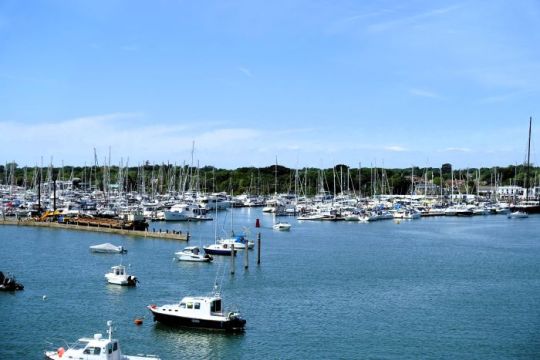
Die Isle of Wight, die einfach nur als “die Insel” bezeichnet wird, ist von Lymington aus mit der Fähre in 40 Minuten zu erreichen - und umgekehrt.
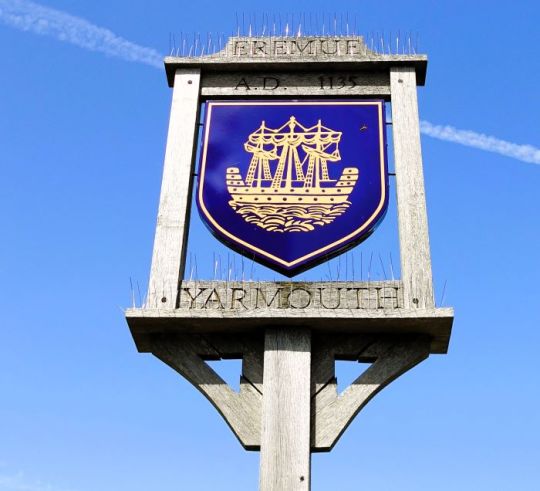
Mit gerade einmal 885 Einwohnern ist Yarmouth der kleinste Ort Englands, der sich Town nennen darf. Dieses Recht wurde dem Örtchen 1135 verliehen.

Eine wirkliche glückliche Geschichte hat dieser Ort nicht zu bieten: Wegen seiner Lage als “Hüter” der Isle of Wight wurde er immer wieder von den Franzosen überfallen und niedergebrannt.
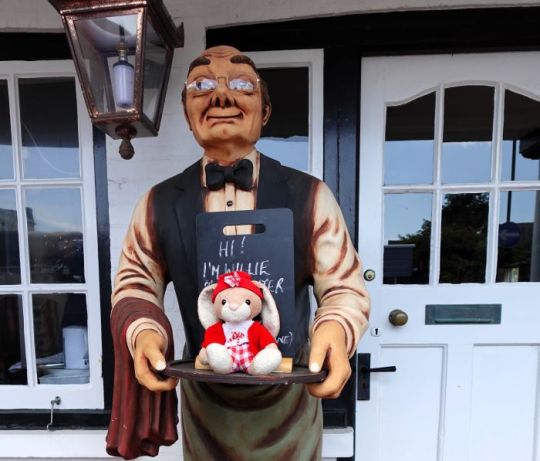
Dennoch sind viele historische Häuser erhalten geblieben und werden liebevoll gepflegt, was zu dem besonderen Flair des Örtchens beiträgt.

Heute ist in Yarmouth jede Menge los, die Sommersaison hat begonnen. Im Hafenbereich tanzt und spielt eine Folkloregruppe, misstrauisch beäugt von den Zeugen Jehovas, die dem Spektakel eher kritisch gegenüber stehen bzw. sitzen.

Die Wightlink Fähren auf der Strecke Yarmouth-Lymington sind doch deutlich kleiner, als die auf der Strecke zwischen der Fishbourne nach Portmouth.

Nachdem die Autos auf dem Autodeck geparkt wurden, müssen alle Passagiere ihre Fahrzeuge verlassen. Leider schalten nicht alle Fahrzeugbesitzer ihre Alarmanlage aus und so jault und hupt es fröhlich, während der gesamten Überfahrt, aus dem Parkdeck.

Mit dem Aufzug geht es hoch auf die Passagierdecks, die mit Restaurant, Panoramafenstern und Aussichtsplattform ausgestattet sind. Bei diesem Traumwetter stürmen natürlich alle auf das Sonnendeck.
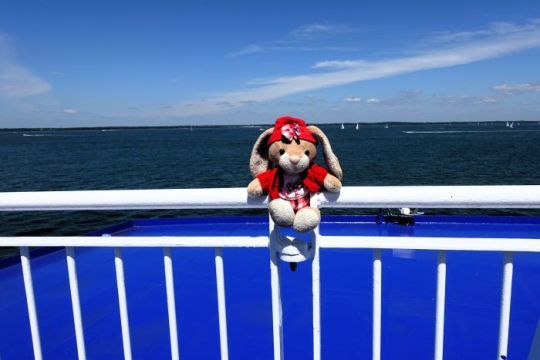
Das andere Ufer kommt schnell in Reichweite und bei der Einfahrt in den Hafen begeben sich alle wieder nach unten, zu ihren Autos. Die Ausfahrt erfolgt in umgekehrter Reihenfolge zur Einfahrt.

Für uns geht es nun wieder, wie im letzten Jahr, einmal quer durch den New Forrest National Park. Allerdings halten wir uns heute nirgendwo auf, denn wir werden auf dem Rückweg hier noch ein paar Tage ein Quartier beziehen und von dort aus die Gegend intensiver erkunden.

Unser heutiges Zwischeziel ist das Langham Wine Estate in der Grafschaft Dorset. Hier haben wir für 14.30 Uhr online einen Tisch reserviert.
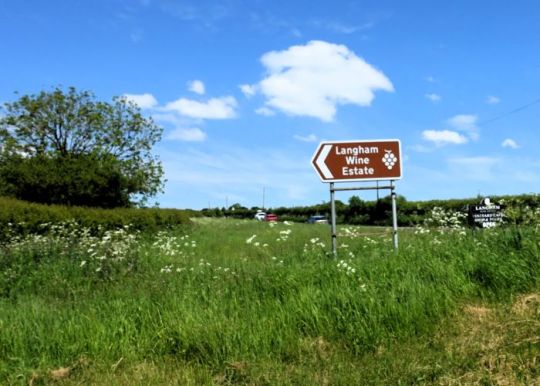
Das Weingut von Langham ist in einer hübschen alten Scheune untergebracht, nur wenige Meter vom Weinberg entfernt. Alter Heckenbestand bietet natürlichen Windschutz und Lebensraum für eine Vielzahl nützlicher Organismen.

Der Weinberg von Langham wurde ursprünglich von Senior John Langham in sehr kleinem Rahmen angelegt. Im Jahr 2009 beschloss Johns Sohn, Justin Langham, den einfachen Weinberg seines Vaters in ein kommerzielles Unternehmen umzuwandeln, und bepflanzte auf seiner Crawthorne-Farm 30 Hektar Land mit Trauben.
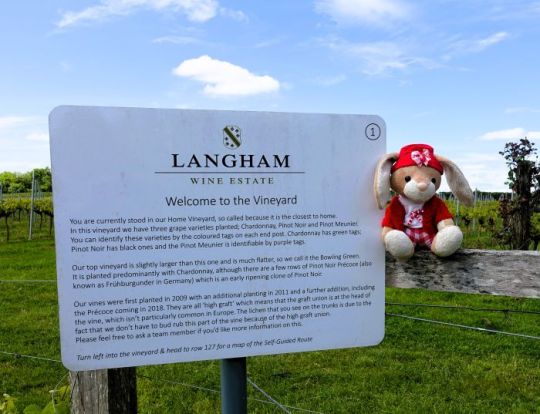
Langham ist der größte Einzelweinberg im Südwesten Englands. Alle 30 Hektar sind mit den klassischen Rebsorten der Champagne bepflanzt: Chardonnay, Pinot Noir und Pinot Meunier.
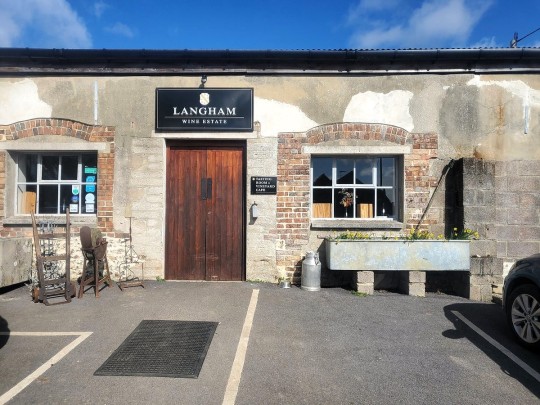
Der Wein wird direkt im Weingut vor Ort hergestellt und nicht irgendwo in einer Genossenschaft oder einem der Big Player weiter verarbeitet. Langhams Winzer Tommy ist mit seinem gerade einmal 25 Jahren Englands jüngster Winzer und gilt weithin als aufstrebender Stern in der Weinbranche.

Ein Hauptgrund für den Standort ist der Kreideboden – Dorset und die umliegenden Grafschaften werden von Kreide- und einigen Kalksteinböden dominiert, wodurch die Region in der Lage ist, hochwertige Trauben für Schaumwein zu produzieren (ähnlich wie in der berühmten Gegend der Champagne in Frankreich).

Langham stellt Weine nur nach der traditionellen Methode her (wie beim Champagner), mit einer zweiten Gärung in der Flasche, um den Schaum zu erzeugen. Anschließend reift jede Flasche mindestens 18 Monate lang auf Hefe, bevor sie degorgiert und unter Korken weiter gereift wird.

Es sind unterschiedliche Touren, ab 15 £ pro Person, buchbar. Picknicks kosten 19,50 £ pro Person. Dazu gibt es eine große Lunch Karte und für den kleinen Hunger eine kleine Tapas Karte.

Eine restaurierte Scheune bietet einen rustikalen, aber praktischen Verkostungsraum. An einem Ende befindet sich eine Bar, an der man direkt von der Kellertür aus probieren und kaufen kann.

Auf der anderen Seite befindet sich ein Café mit leckeren, lokalen Produkten. Dies macht es für uns zum perfekten Zwischenstopp, um vorbeizuschauen, etwas zu essen und zu probieren.
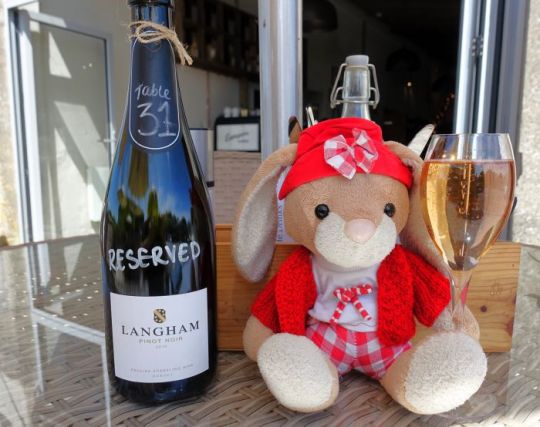
Der Service ist super flott, trotz der gut gefüllten Tische. Bei dem schönen Wetter nutzen die Leute den Tag anscheinend zu einem Weingutbesuch.

Der Fahrer musste sich allerdings zurück halten, denn wir müssen noch eine 3/4 Stunde bis zu unserem endgültigen Ziel, der Wayland Farm fahren.

Die Farm liegt abseits in einem Tal und ist eine echte "Working Farm" mit genau einer Gästeunterkunft. Unsere Nachbarn sind Rinder und Esel.
Good Night!
Angie, Micha und Mister Bunnybear (Hasenbär)
#isle of wight#Yarmouth#lymington#New Forest National Park#Dorset#Langham Wine Estate#Wayland Farm#Südengland#England
9 notes
·
View notes
Photo

Visitors to Burgundy … will sense all around them the history and religion. … They will know that this is hallowed soil: it has been blessed and cajoled and prayed for over the centuries, many of the vineyards being worked by monks for whom wine is not just a drink but a sacrament … Even in this skeptical age, their vine is something more spiritual than vegetal, and their soil more heaven than earth.
- Sir Roger Scruton, I drink therefore I am
Good wine is a ‘somewhere’, not an ‘anywhere’. It is stamped with a place and a year. Rooted, literally. The fancy French word for this is terroir, referring to the way in which environment - soil, geology, even the history of a place - is all responsible for a wine’s character. Terroir is a sense of place in a glass. Roger Scruton often referred to himself as a ‘terroiriste’. And this could describe his political philosophy as much as his philosophy of wine. From 2001 to 2009, Scruton wrote a wine column in the New Statesman, enabling him to smuggle into that otherwise exclusively Left-wing journal, all sorts of reactionary political ideas: about God, about fox-hunting, about beauty, about his love of the countryside.
Wine, for Scruton, was never just about the taste, never a merely aesthetic sensation. Indeed, he was extremely sniffy about all those ‘blind tastings’ — the ones where we delight when an expert fails to spot the difference between plonk and Premiere Cru. They miss the point, says Scruton. Blind tasting, he explained, is like blind kissing — not a good way to distinguish, for example, between someone who is sexy and someone who is not. Indeed, if the experiment on Love Island is anything to go by, it’s not even a good way to distinguish who your own girlfriend is.
That’s because sexual chemistry, like wine, is a great deal more than some momentary sensation on the lips. It’s a great deal more than a message sent by taste receptors to the brain. It is all about the terroir. And this is not just a comment about wine but about aesthetic experience in general. When we encounter a work of art, we bring a whole hinterland of knowledge that makes sense of that specific experience and gives it its character as art. Music is more than a vibration of the air and its reception by the ear and the brain. So too with wine and taste.
But scientists often get very sniffy about terroir. They think it’s some quasi-spiritual rubbish that has been invented by snotty French vineyards to give them a commercial edge. Writing in Decanter magazine, the geologist Professor Alex Maltman challenged the very idea that geology has any particular contribution to a wine’s taste. “Vines and wine,” he wrote, “are not made from matter drawn from the ground, but almost wholly of carbon, oxygen and hydrogen, abstracted from water and the air.”
Scruton wrote about wine very differently - not because he disagreed about the science but because he understood aesthetics very differently. He bemoaned the way in which aesthetic experience had come to be seen as something separable and distinct from questions of the good, or the true, or of politics or indeed anything else. That’s why his wine column ranged so far and wide. Beauty, for example, an idea that lies at the centre of Scruton’s philosophy, is as much a moral as it is an aesthetic phenomenon. There is no wall between them.
His writing about wine could be a bit sentimental maybe. But what is going on in his love affair with Burgundy is as much about Scruton’s politics of place, his conservatism. At the centre of his political thought, was the idea of loyalty to place and to those with whom you share space as being of supreme value. This contains a sense of solidarity with the land – hence his thoroughgoing environmentalism — but also to the history of a place and its spirituality. And here we bump into what is most potentially dangerous about Scruton’s thought. Soil and sacrificial blood are, after all, ideas beloved by fascists.
But it is important to emphasise that he never thought the nation state should be celebrated in terms of race or creed. For him, it was a commitment to place, and the shared and common institutions, customs and traditions that make a place what it is.
Moreover, Scruton’s conservatism wasn’t aggressive. Wine, when drunk properly, relaxes people and introduces conviviality. People fight over oil, he once remarked, but not over wine. As he once put it about wine-growing in the Lebanon, “Invade the producer and you lose the product; trade with him peacefully and you are supplied from year to year.” Indeed, “Hezbollah don’t occupy the Beqaa because of Chateau Musar – if they did, peace would quickly come to southern Lebanon.”
Wine, and indeed terroir-ism, was, for him, the product of, and encouragement towards, peace and civility. What he had in mind here was more the wine of the Greek symposium than that guzzled in quantity by the boorish drunk. His idea of heaven was that of domestic home-loving contentment, with friends sitting around the table drinking wine, sharing ideas. There is nothing remotely fascist about this.
#scruton#roger scruton#quote#wine#drink#drinking#vineyard#society#farming#culture#terroir#soil#burgundy
69 notes
·
View notes